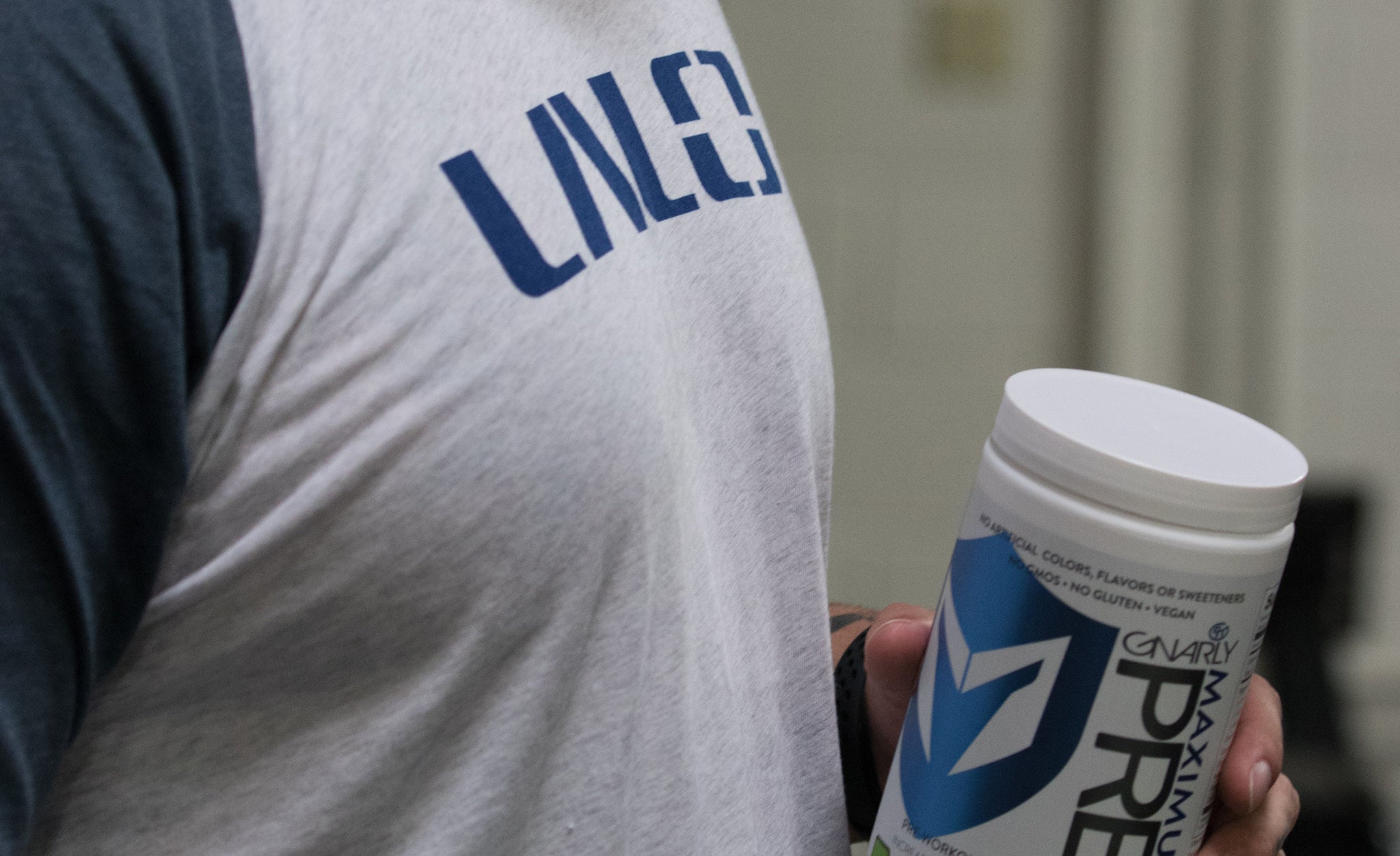News — blog
Mountains of Muscle
Will increasing protein in my diet make me bulk up? Hell no, but it may help make you stronger.
Thanks to our friends at Gnarly Nutrition, we've got an answer for you. Have a read and let us know your thoughts on increasing protein intake and how it has worked or not worked in your training regimen.
By Shannon O’Grady, Ph.D. for LALO
“Will increasing the protein content of my diet make me bulk up?” I hear this A LOT, both because I work for a company that makes protein powder and because I’m a woman. I’m not saying that men don’t potentially have the same misconception, but the idea that increased dietary protein will lead to huge muscles isn’t always a negative for men, where it is almost ALWAYS a perceived negative for women.
For the purpose of this discussion, when I say “bulking up” I am specifically talking about gains in muscle mass aka muscle hypertrophy, as opposed to gains in fat mass. This distinction is important because while both involve increases in total caloric intake, gaining substantial muscle mass also involves alterations to both your frequency and type of strength training.
So let’s first talk about why there may be this misconception, that protein supplementation leads to bulk, and then address why it is just that, a misconception. While we are at it, let’s address why increasing dietary protein makes a lot of sense for athletes in terms of performance and recovery and discuss the best way to go about increasing protein in your diet.

Protein supplementation, and increased dietary protein, is often associated with the bodybuilding and Crossfit communities, where increased muscle mass is either the goal (bodybuilding) or a means to an end (being a competitive crossfit athlete). Thus people external to these communities often make the assumption that increased protein alone is responsible for the muscular physique of bodybuilding and Crossfit athletes. On top of that, over the years, protein companies have published creative marketing that has lead consumers to believe that by simply taking a protein powder, your arms, shoulders and chest will magically grow into mountains of muscle.
So here we go, I’m going to say it: Increasing the protein in your diet, either through supplementation or whole foods, will not by itself make you jacked.
The marketing simply isn’t true and there is so much more that goes on behind the scenes for Crossfit athletes and bodybuilders than simply eating more protein. That begs the question, “What does lead to substantial increases in muscular mass?”
Gains in muscle mass require substantial alterations to both diet and training. In terms of diet this means an increase in not just protein intake, but also total caloric intake. For example, you are not only changing your protein from 35% to 45% of your diet, you’re also increasing your total calories from 2500 to 3000. Coupled with changes to your diet are necessary changes to 1) the frequency of strength workouts in your weekly program 2) the types of movements in your training (compound movements get a heavy emphasis), 3) Repetition scheme and weight used (i.e., 4x4 at 80% 1RM) and 4) overall effort (often to failure).
While strength gains are definitely of benefit to most athletes, substantial increases in muscle mass, and therefore weight, are not always ideal. This begets the question: can you gain functional strength without adding bulk and thus sacrificing strength to weight ratio? The answer is an absolute yes and once again has both a training and diet component. I’ll leave the discussion of strength training in your sport of choice to the experts in that sport and, as promised, focus on how dietary changes and specifically, increasing dietary protein, can benefit you as an athlete.

1) Increased muscle repair and synthesis
Think recovery, recovery, recovery. The Recommended Daily Allowance (RDA) for protein in “healthy” adults is 0.8g/kg body weight per day. The RDA values for protein are set at “the level of protein judged to be adequate...to meet the known nutrient needs for practically all healthy people” (Institute of Medicine, 2005). It’s critical to note that not only are the RDA values outdated, but they also fail to take into consideration the amount of protein required by both endurance and strength athletes to both adapt and gain from training stimulus (Phillips and VanLoon, 2011). Specifically, the RDA recommendation does not 1) offset the oxidation (use as energy) of protein or amino acids during exercise and 2) include protein to promote muscle synthesis and repair after intense training (Campbell et al., 2007). Increased protein for strength athletes is primarily required for the synthesis of new muscle and/or to repair muscle damage (Phillips et al., 2006; Moore et al., 2009); resulting in increased strength and a quicker turn around between hard days. Of note is that increased protein intake for endurance athletes is equally as important and plays a key role in increasing mitochondrial density and efficiency in muscles (Phillips et al., 2006).
2) Improved strength to weight ratio
Beyond what’s needed to repair and build new muscle, increasing the protein content of your diet can actually lead to an improved strength to weight ratio by reducing total caloric intake. Why is this? Because protein, and fat for that matter, is generally more satiating than carbohydrates and increasing the protein in your diet may reduce the total amount of food you consume. A lower caloric intake can mean fat loss and potentially, positive changes in body composition. Supporting this is a 2005 study in the American Journal of Clinical Nutrition (Weigle et al., 2005) where researchers found that when study participants were put on a higher protein diet (30%) and allowed to eat as much as they wanted, they actually ate less and lost body fat compared to the same protocol but with lower dietary protein (15%); carbs were held constant at 50%. The researchers attributed this change in body composition to the satiating effects of higher levels of protein intake and the resulting decrease in total caloric intake. But you may be thinking, what about the fat content? In this study, increasing the protein content of the diet actually had a bigger impact on body composition than lowering dietary fat.
So, how much protein should an athlete be eating and is there a limit to the benefit of increased protein intake?
Research suggests that there does seem to be a threshold above which increased daily protein intake has no benefit. A study examining the impact of differential amounts of total daily protein on whole body protein synthesis in trained strength athletes found that protein synthesis was reduced in athletes on a “low” protein diet (0.86g/kg/day) relative to medium (1.4g/kg/day) and high (2.4g/kg/day) protein diets, but there was no difference in whole body protein synthesis between medium and high daily protein intakes (Tarnopolsky et al., 1992). Supporting this older study, a recent review of 49 studies and 1863 participants, found that total protein intakes beyond ~1.6g/kg/day did not lead to further strength gains (Morton et al., 2017). Additionally, and possibly more importantly, there are not only limits to the benefits of total daily protein intake but also to the amount of protein consumed in a single sitting. Moore et al., 2009 demonstrated that the positive impact of protein intake on muscle protein synthesis plateaus at 20g with higher amounts of protein (up to 40g) causing no further increase in protein synthesis. Since then, additional studies looking at whole body exercise and muscle protein synthesis put this intake plateau closer to 40g, but further research needs to be done to validate this finding (Macnaughton et. al., (2016).
So what should athletes take away from this?
Daily protein should be consumed regularly throughout the day in ~20-40g doses to maximize strength gains and recovery. Aim to consume 20-40g of protein every 3-4 hrs for a total of 4-5 snacks or meals.
My Final Answer.
No, just increasing the protein in your diet won’t make you bulk up. If that is your goal, it’ll take changes to your training and more total calories to give you the arms of your dreams. However, what more dietary protein will do for you (in combination with training) is have a positive impact on your strength to weight ratio and, more importantly, improve recovery by stimulating muscle protein synthesis and repair.



